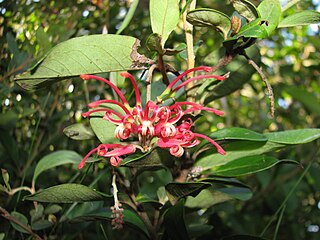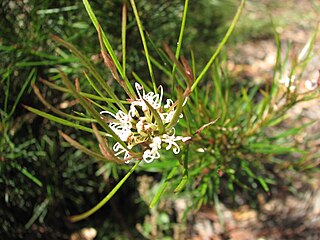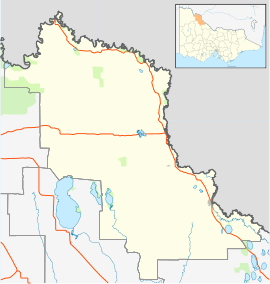
The governor of Victoria is the representative of the monarch, Queen Elizabeth II, in the Australian state of Victoria. The governor is one of seven viceregal representatives in the country, analogous to the governors of the other states, and the governor-general federally.

In Australia, electoral districts for the Australian House of Representatives are called divisions or more commonly referred to as electorates or seats. There are currently 151 single-member electorates for the Australian House of Representatives.

The Victoria men’s cricket team is an Australian first-class men's cricket team based in Melbourne, Victoria. The men’s team, which first played in 1851, represents the state of Victoria in the Marsh Sheffield Shield first-class competition and the Marsh One Day Cup 50-over competition.

The Victoria State Government, also referred to as just the Victorian Government, is the state-level authority for Victoria, Australia. Like all state governments, it is formed by three independent branches: the executive, the judicial, and the parliament.

Australian rules football matches between teams representing Australian colonies, states and territories have been held since 1879. For most of the 20th century, the absence of a national club competition and international matches meant that football games between state representative teams were regarded with great importance. Football historian John Devaney has argued that: "some of the state of origin contests which took place during the 1980s constituted arguably the finest expositions of the game ever seen".

The states and territories are federated administrative divisions in Australia, ruled by regional governments that constitute the second level of governance between the federal government and local governments. States are self-governing polities with incomplete sovereignty and have their own constitutions, legislatures, departments, and certain civil authorities that administer and deliver most public policies and programmes. Territories can be autonomous and administer local policies and programmes much like the states in practice, but are still constitutionally and financially subordinate to the federal government and thus have no true sovereignty.

Victoria is a state in southeastern Australia. It is the second-smallest state with a land area of 227,444 km2 (87,817 sq mi) and the most densely populated state in Australia. Victoria is bordered with New South Wales to the north and South Australia to the west, and is bounded by the Bass Strait to the south, the Great Australian Bight portion of the Southern Ocean to the southwest, and the Tasman Sea to the southeast. The state encompasses a range of climates and geographical features from its temperate coastal and central regions to the Victorian Alps in the north-east and the semi-arid north-west.
A State Electoral District is an electorate within the Lower House or Legislative Assembly of Australian states and territories. Most state electoral districts send a single member to a state or territory's parliament using the preferential method of voting. The area of a state electoral district is dependent upon the Electoral Acts in the various states and vary in area between them. At present, there are 409 state electoral districts in Australia.

The Victoria Australian rules football team, known colloquially as the Big V, is the state representative side of Victoria, Australia, in the sport of Australian rules football.
The Victoria Cross for Australia is the highest award in the Australian Honours System, superseding the British Victoria Cross for issue to Australians. The Victoria Cross for Australia is the "decoration for according recognition to persons who in the presence of the enemy, perform acts of the most conspicuous gallantry, or daring or pre-eminent acts of valour or self-sacrifice or display extreme devotion to duty."

The South Australia state football team is the representative side of South Australia in the sport of Australian rules football.

The National Herbarium of Victoria is one of Australia's earliest herbaria and the oldest scientific institution in Victoria. Its 1.5 million specimens of preserved plants, fungi and algae—collectively known as the State Botanical Collection of Victoria—comprise the largest herbarium collection in Australia and Oceania.

Melbourne is the capital and most-populous city of the Australian state of Victoria, and the second-most populous city in both Australia and Oceania. Its name generally refers to a 9,993 km2 (3,858 sq mi) metropolitan area known as Greater Melbourne, comprising an urban agglomeration of 31 local municipalities, although the name is also used specifically for the local municipality of City of Melbourne based around its central business area. The city occupies much of the northern and eastern coastlines of Port Phillip Bay and spreads into the Mornington Peninsula and the hinterlands towards the Yarra Valley and the Dandenong and Macedon Ranges. It has a population over 5-million, mostly residing to the east side of the city centre, and its inhabitants are commonly referred to as "Melburnians".

The Victoria Cross (VC) is the highest and most prestigious award of the British honours system. It is awarded for valour "in the presence of the enemy" to members of the British Armed Forces and may be awarded posthumously. It was previously awarded by countries of the Commonwealth of Nations, most of which have established their own honours systems and no longer recommend British honours. It may be awarded to a person of any military rank in any service and to civilians under military command. No civilian has received the award since 1879. Since the first awards were presented by Queen Victoria in 1857, two thirds of all awards have been personally presented by the British monarch. The investitures are usually held at Buckingham Palace.
The Reason Party is an Australian political party founded in 2017. Its leader, Fiona Patten, describes the party as a "civil libertarian alternative". Patten was elected to the Victorian Legislative Council as at the 2018 state election in the Northern Metropolitan Region, after formerly being elected as a Sex Party member for the same seat in the 2014 state election.
Victoria most commonly refers to:

Grevillea miqueliana, commonly known as oval-leaf grevillea, is a shrub that is endemic to mountainous areas of eastern Victoria in Australia. It grows to between 1.5 and 2.5 metres in height. The species was first formally described by botanist Ferdinand von Mueller, his description published in Transactions of the Philosophical Society of Victoria in 1855. The species epithet honours Dutch botanist Friedrich Anton Wilhelm Miquel (1811-1871).

Grevillea neurophylla, commonly known as granite grevillea, is a shrub species in the family Proteaceae. It is native to the states of New South Wales and Victoria in Australia. The species was first formally described by French botanist Michel Gandoger in Bulletin de la Société Botanique de France in 1919. There are two subspecies:
Grevillea patulifolia, commonly known as swamp grevillea, is a shrub species in the family Proteaceae. It is native to the states of New South Wales and Victoria in Australia.

The Australian Federation Party (AFP), formerly known as the Country Alliance and the Australian Country Party, is an Australian political party. Founded in 2004 by four rural Victorians, the party lodged its initial registration with the Victorian Electoral Commission on 15 August 2005.















